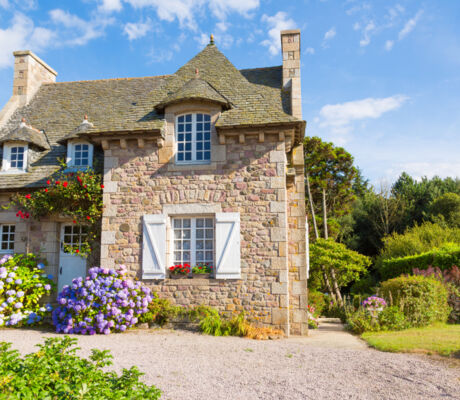Buying property in France is an attractive option for a number of reasons, but arranging mortgages in France can be confusing—especially for U.K. buyers. Though the process of securing real estate finance across the channel is not completely alien, there remain some key differences that must be borne in mind for property investors and second home-purchasers who are exploring mortgages in France. This is important to consider, even before you’ve found a property for sale in France, so you have an understanding of what a French bank might offer you.
The first key difference to highlight is the relative dearth of dry loan options in France compared to in the U.K. With the EURIBOR now entering its fourth year in negative territory, the vast majority of continental lenders are still averse to issuing clients property finance unless there is an opportunity to manage their wealth concurrently, in order to maximise returns.
Buying a property in France often requires assets under management
With this in mind, most lenders will require a level of ‘assets under management’ or ‘funds under management’ to be invested in their institution in conjunction with the loan – which can range anywhere from 20% to 60% of the total amount borrowed. If maintaining liquidity is a key priority, using a specialist French mortgage broker can help, as we will identify and negotiate on your behalf with the lender featuring the lowest asset requirements available to you across the market.
In their aim to maximise returns through wealth management, as a rule, French banks and other continental lenders are more hesitant in lending to property developers in France than in the U.K. Buy to let mortgages do not exist as a distinct product, interest-only products are relatively uncommon, and selling the security property before the end of term is often not viewed as a valid repayment vehicle.
That being said, though uncommon, there are a small number of lending institutions on the continent who are happy to take on clients not looking to develop a wider banking relationship, but rather, to carry out individual property acquisition or development financing transactions. These lenders will require a low asset pledge (sometimes at the expense of the interest rate), and will prioritise the profitability of the project over the client’s personal situation when underwriting the file.
Local French lenders could be your best bet
Invariably, these are more niche and lesser-known lenders, often without English-speaking staff. For this reason, to secure the most suitable product, it is imperative that property developers consult a specialist French mortgage broker, who will immediately know which institutions to approach on your behalf.
In terms of interest rates, as alluded to above, French mortgage rates continue to stand at a historical low. Moreover, it is common in France to fix your interest rate over 20 years or more – at a rate as low as sub-2%. French mortgages, thus, offer long term security against interest rate rises – a luxury not afforded to U.K. property investors. Consult your French mortgage broker to find out the lowest rate you could secure with your personal circumstances.
Before embarking on your French mortgage enquiries, one of the most important considerations for a U.K. investor to bear in mind are the higher fees involved when carrying out a French real estate finance transaction. The legal fees and taxes on a purchase can amount to up to 7.5% of the purchase price, and up to 1.5% of the refinancing amount when re-mortgaging. A good French mortgage broker will have tips to minimise these fees – including seeking a lender operating in a jurisdiction which permits the registration of a cheaper mortgage charge, or if possible, negotiating with the lender to allow the cost of fees to be added to the loan balance.



